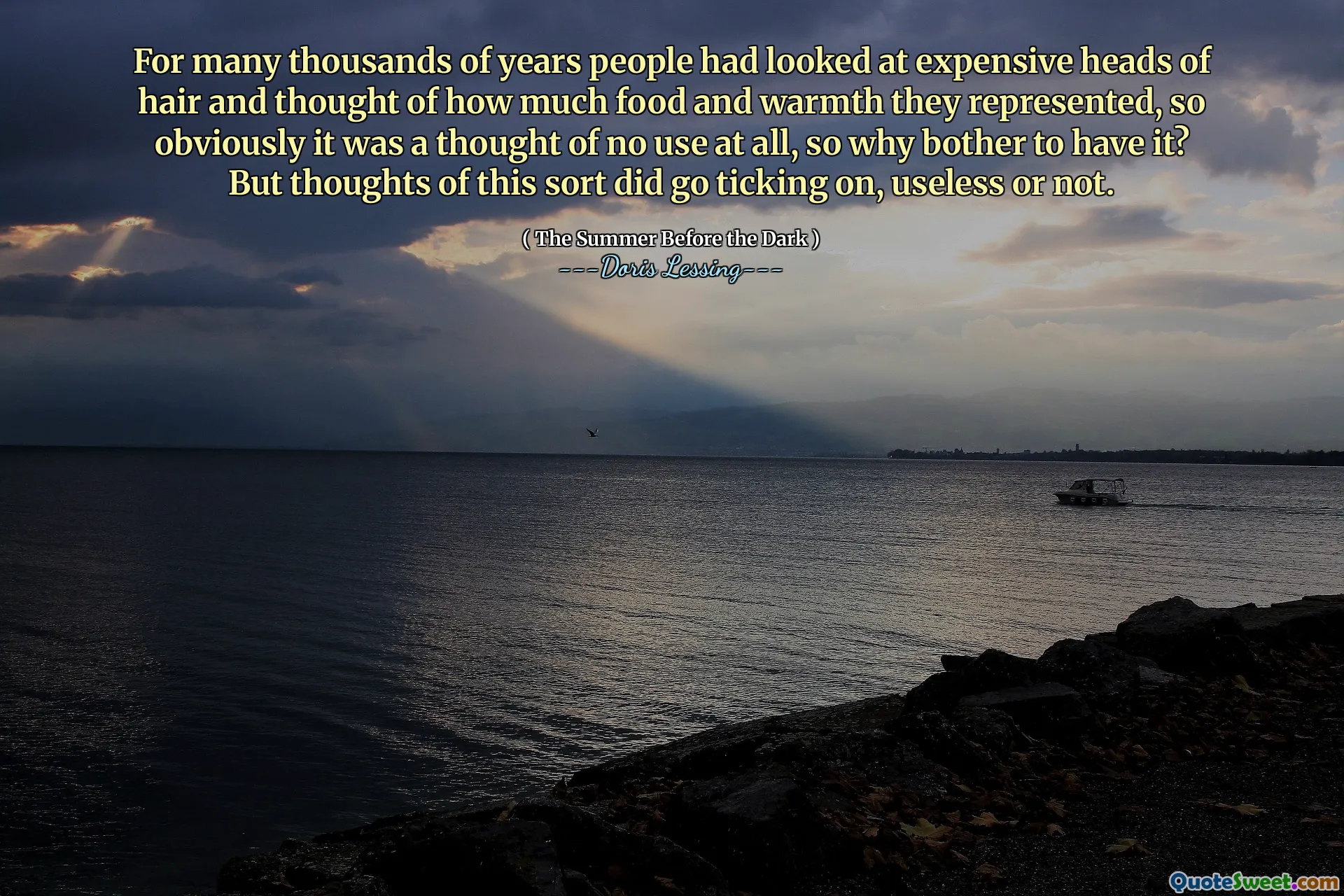
For many thousands of years people had looked at expensive heads of hair and thought of how much food and warmth they represented, so obviously it was a thought of no use at all, so why bother to have it? But thoughts of this sort did go ticking on, useless or not.
This quote from Doris Lessing's The Summer Before the Dark delves into the paradox of human cognition and cultural symbolism. At its surface, it reflects on the practical assessment of a trait—hair—by early humans who equated luxurious hair with tangible resources like food or warmth. From a strictly utilitarian perspective, questioning the value of something as seemingly superfluous as 'expensive heads of hair' appears logical; if it offers no clear survival benefit, why maintain such traits or even muse about them? Yet, the passage simultaneously reveals how such thoughts persist despite their perceived lack of direct utility.
This invites reflection on the broader nature of human existence, where not all thoughts or cultural attributes serve immediate pragmatic purposes. Instead, these seemingly 'useless' ruminations embody the rich layers of meaning, identity, and social signaling intrinsic to humanity. The continuation of such thoughts suggests that our cognitive processes transcend pure survival calculus. They fuel creativity, social bonding, aesthetic appreciation, and abstract reasoning—all fundamental to human progress.
Moreover, the quote touches on the tension between evolutionary utility and cultural evolution. What begins as a survival-related evaluation may cultivate into complex social phenomena—like fashion, beauty standards, or even self-expression. Thus, the 'useless' becomes indispensable in constructing our humanity. This perspective encourages us to value the mental and cultural landscapes we inhabit, acknowledging that not all aspects of human thought or culture need to be strictly utilitarian to be meaningful or impactful.
In sum, Lessing captures the enduring mystery of why humans continue to ponder the apparently pointless. These musings, however 'useless,' enrich our experience and signify that being human is about more than just survival; it's about the layers of thought that shape our shared world.






